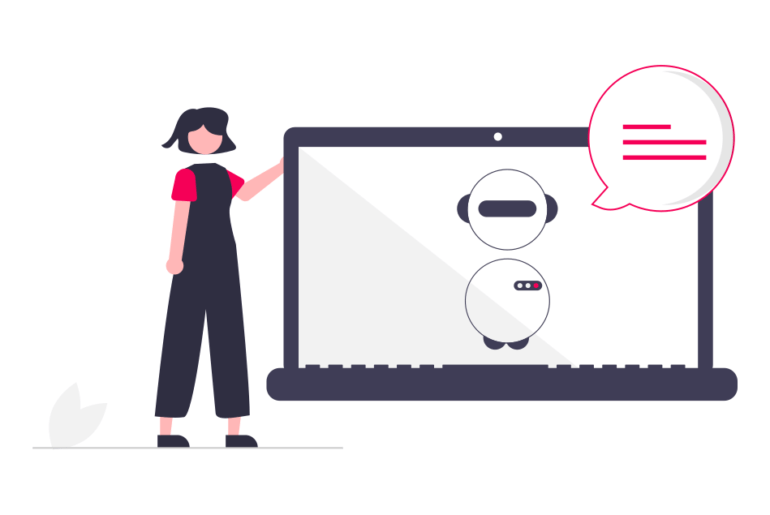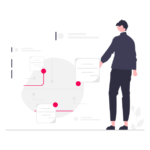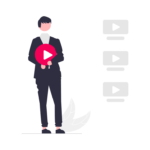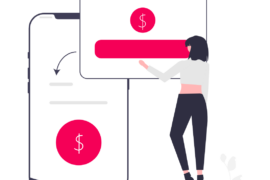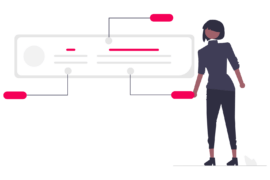Preventing web scrapping is something that you should prioritize as a web publisher. Learn why you should safeguard your content and block web scraping along with a detailed walkthrough of measures that you can take.
The one very popular AI tool making the rounds in the world of web and wreaking havoc is of course ChatGPT (Chat Generative Pre-Trained Transformer), since the time of launch in the month of November 2022.
The rise of AI models like ChatGPT and others have also given rise to a sense of concern among people considering their tendency to scrape content to their advantage.
Nowadays, data and content protection is of utmost importance, this factor has become all the more menacing and worrisome. In order to understand how to combat this problem, it is pertinent that you know how these bots operate and exactly what kind of threat you face because of them.
So without further ado, let’s delve into the heart of the matter and understand how you can stop website scraping.
How to Tell if Your Content is Being Scraped?
Before getting to know how to block web scraping, you must first know whether or not your content is being scraped. Various plugins, including ChatGPT and similar language models, have suddenly risen to the peak of popularity, given their ability to generate texts very close to human interactions.
Now these tools have gone a step ahead and caused lay-offs in the fields of customer service, content creation, and even creative writing. In spite of the fact that they are actually helpful in more ways than one, you need to realize that they are also being utilized to scrape content.
When it comes to the internet, web scraping is essentially the process by which bots are used to extract information from various websites. The primary function of these bots is to visit various websites, collect different kinds of data, and use this data to further train the AI models. When Large language model definition (LLMs) like ChatGPT start scraping content, they utilize this collected data to develop and enhance their abilities of human-like text generation.
Soon it becomes a problem, when this function of scraping content amounts to infringement of rights to intellectual property and ends up causing harm to publishers and other media houses. So it is important to know how the scraping happens and the consequences of the same on your web traffic.
So this allows you to know if your content is being scraped so you can take effective measures to block web scraping.
How Does Web Scraping Hurt Your Efforts?
There are a number of ways in which scraping can create problems for you if you have anything to do with content creation on the web. Let’s discuss some of the major issues for a clearer perspective:
Losing Authority Over Your Own Content
It is as bad as it sounds. When LLMs like ChatGPT scrape your content, they primarily repurpose and distribute your content in a different form to a different place. It is only natural that you end up losing control over your content. As the original creator of said content, it undermines your authority and disturbs the originality and integrity of the content.
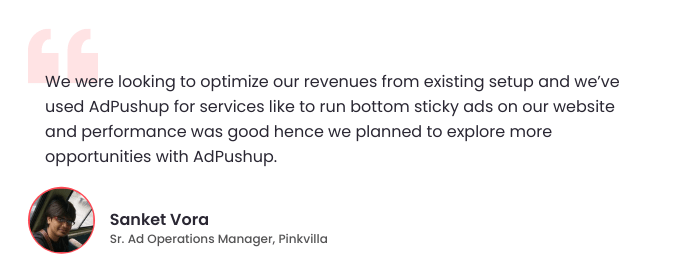
Hurts the Search Engine Rankings
One of the most important reasons why publishers block web scraping is that it ends up hurting their search engine rankings. Scraping also impacts your Search Engine Rankings to a great extent. The main purpose of search engines is to prioritize content that is unique and original. But when your content is being scraped by ChatGPT, your website’s relevance and visibility in the search results get diluted to a great extent. Automatically your organic traffic takes a hit and you face a possible loss in revenue.
Distortion of Brand Representation
ChatGPT and other AI language models have no responsibility toward maintaining your brand name or reputation. So if the content they scraped is represented distorted or out of context, your intentions might get represented.
This creates confusion among users, leading to a number of potential problems – the most serious of them being a damaged brand reputation. It is imperative that the identity of your brand is protected and your content is used in a responsible manner along with appropriate attribution.
How to Block Web Scraping?
Considering the above risks, it becomes essential for the publishers to implement basic measures like CAPTCHAs, and user agent detection methods like IP blocking which help in detecting bots typing to scrape content out of your website. Also, if you can make it a practice to analyze your web traffic patterns on a regular basis, you would be able to pinpoint anomalies pointing towards scraping attempts and thereby take appropriate actions.
Apart from these basics, also try to implement limiting of utilization rates. Rate limiting is quite effective in controlling the number of requests from an IP address made within a specific time frame. This way, you will be able to ensure that genuine users only can access your website, and bots in turn can be stopped from scraping the content in your website. Rate limiting will also help you maintain the availability as well as the performance of your website.
If you usually provide RSS feeds for the purpose of syndication, you have to make sure that you keep them protected by implementing various authentication mechanisms and API keys. While RSS feeds can be great methods of syndication, they are also prone to being targeted by bots. This way it will be ensured that only authorized users and applications can consume your feeds.
Conclusion
AI language models are definitely here to stay and are not going to go anywhere any time soon. It is also true that when used responsibly, these models can be incredibly useful within the limits of ethics and rights.
So as content publishers, the smart thing to do here will be not to let down your guard and take necessary precautions to stop bots from scraping your content and misrepresenting your intents. Follow the methods we have discussed above and your intellectual property will remain safe and far from scraping.
FAQs on How to Prevent Site Scraping
Yes, web scraping can be blocked using various methods such as using CAPTCHAs, IP blocking, and API keys.
Yes, Google has measures in place to prevent and limit automated web scraping through its terms of service, CAPTCHAs, and other security mechanisms.

Nidhi Mahajan is a content author with a remarkable talent for ad tech. With a deep understanding of the ad tech industry and a sharp focus on detail, she excels in crafting insightful articles and compelling narratives. Nidhi is dedicated to making the complexities of ad tech more accessible to all through her clear and informative writing.
